Hope for a fair world for everyone? Put your passion into action as a volunteer with Voluntary Service Overseas (VSO). As a VSO volunteer, you can fight poverty and marginalization across the world and build a brighter future for all.
Established in 1958 in the United Kingdom, VSO aims to create lasting change through volunteering in some of the world’s poorest countries. By serving as a VSO volunteer, you can immerse yourself in a community overseas and coordinate initiatives with local leaders to tackle society’s biggest challenges.
Before you apply to become a VSO volunteer, familiarize yourself with the organization, their application process, and the assignments you can take. Reading VSO volunteer reviews and talking with past volunteers can help you understand more about the experience. Reading guides online, like this one, will put you in a better position for success as a VSO volunteer.
In this guide, we’ll go over all the important details about VSO volunteering. We’ll cover where you can go and what you can do. And we’ll not only inform you of the requirements you need to meet, but also give you tips for getting accepted as a VSO volunteer.
Additionally, since serving with Voluntary Service Overseas doesn’t suit everyone, we’ll provide alternatives, such as going on a mission trip, working for an NGO abroad, or volunteering with Plan My Gap Year.
!COVID-19 UPDATE!: The COVID-19 pandemic has halted most international volunteer travel. Let us take this time to say we hope everyone is staying safe and healthy. Please note that VSO has NOT shut down their programs yet, as many local communities depend on the help of VSO volunteers during crises. For updated information on VSO programming and novel coronavirus, please visit: https://www.vsointernational.org/coronavirus-statement
What is Voluntary Service Overseas?
Voluntary Service Overseas is a non-profit international development charity that has a vision for a world without poverty. To achieve that vision, Voluntary Service Overseas brings international, national, and community volunteers together to address inequalities and poverty. Programs focus on improving education, healthcare, and livelihoods.
What does VSO do?

VSO works to end poverty. VSO doesn’t send aid, but rather uses a volunteer-based model to create long-lasting change in impoverished regions. On the ground, VSO partners with local government agencies, NGOs, corporations, and other leaders. Through these partnerships, volunteers and partners can better create and implement systems and conditions that enable positive development.
As VSO states, “when teachers pass on their skills to others, when community groups are shown reliable sources of income, and when governments are helped to make systems fairer, this brings about lasting change.”
VSO emphasizes values of collaboration, knowledge, inclusion, and integrity in all the work they do. They operate by certain principles, including:
- People First: This helps VSO better support United Nations Sustainable Development Goals.
- Theory of Change: Positive transformation stems from people working together.
To end poverty, Voluntary Service Overseas’ programs focus on three core areas:
- Inclusive Education
- Quality Healthcare
- Resilient Livelihoods
Now that you know the vision and mission of Voluntary Service Overseas, it helps to know the history of the organization. That knowledge allows you to show your enthusiasm during the application process.
How did Voluntary Service Overseas begin?
In 1958, the Bishop of Portsmouth published a letter in The Sunday Times asking for volunteers to teach English in Borneo. In response, Alec and Mora Dickson recruited 16 volunteers and sent them to Southeast Asia to teach. From this moment, Voluntary Service Overseas formed and began carrying out their mission.
Since founding, Voluntary Service Overseas has grown from 16 British volunteers into one of the largest international charity organizations. Over the last 60+ years, VSO has been turning human ingenuity and energy into positive change. Major milestones along the way include:
- In 1959, VSO recruited their first women volunteers.
- In 1971, VSO opened their first overseas location in Papua New Guinea.
- In the 1990s, VSO joined the fight against the HIV/AIDS epidemic.
- In 2010, VSO developed the People First strategy to best combat marginalization and poverty.
- In 2015, the United Nations recognized VSO as a valuable partner in achieving Sustainable Development Goals.
- By the late 2010s, VSO had helped more than 50 million people through their programs.
To date, VSO has worked in more than 90 countries and placed more than 80,000 volunteers on assignments abroad. Overall, they’ve supported more than 50 million people through health, education, and livelihood programs. Each year, they serve more than 1 million people.
What countries does VSO serve?

You can serve as a VSO volunteer in many countries around the globe. Currently, VSO works in 24 countries across Africa, Asia, and the Pacific. To achieve the mission, VSO partners with 500+ local organizations, governments at all levels, corporate partners, academic institutions, funders, and advocacy platforms.
If you want to volunteer with VSO, you’ll find assignments in a range of countries, from Ghana and Ethiopia to Myanmar and the Philippines. Top countries for VSO projects include:
Many top VSO countries are wonderful places to visit and make our list of the best places to volunteer abroad, such as Thailand and South Africa. As you can see, when you volunteer with Voluntary Service Overseas, you can do good, explore other cultures, build skills, and have fun!
For a full overview of what Voluntary Service Overseas does in each country, click here. The exact nature of your assignment depends on the need of the local community.
For instance, VSO volunteers helped more than 12,000 impoverished children in India in 2019, providing those kids with access to better education. In Sierra Leone, VSO supported more than 13,500 pregnant women through health projects, ensuring better outcomes for newborns and mothers.
Note: The countries served by VSO change occasionally. When you apply, check the VSO’s website for an updated list of destinations. If you’d like to volunteer in a certain country and discover VSO doesn’t have opportunities there, search our guidebooks for volunteer programs elsewhere. Whether you want to teach English in Latin America or volunteer in Eastern Europe, we have you covered!
Who can join Voluntary Service Overseas?
VSO roles are professional volunteer roles. If you meet the basic volunteer requirements, you can join Voluntary Service Overseas. Basic requirements include:
- Being between 18-75 years old
- 3 years of professional experience
- A degree or equivalent qualification
- Being able to pass a health exam and background check
- Commitment to the full duration of your placement (most assignments last 2 years)
Note: While volunteers have historically been young professionals, VSO has seen an increasing amount of mid-career professionals and even retirees. There are volunteer opportunities for those over the age of 50.
When you look through current openings, take note of the placement’s specific requirements. Here are a few examples of unique requirements for various positions:
- A role as an Education Literary Adviser in Mozambique requires 5 years of teacher training experience, experience in developing literacy training materials, and fluency in English and Portuguese.
- A role as a Neonatal Nurse in Tanzania requires 3+ years working in a neonatal intensive care unit (NICU), a Registered Nurse license, and experience working in a healthcare setting in Africa.
- A role as a Community Development Coordinator in Myanmar requires proficiency in English and Burmese or another local language, previous experience working in Myanmar, and experience leading initiatives in disaster risk reduction (DRR).
As you can see, you need a high level of education, skills, and experience for many VSO volunteer roles. Historically, less than half of the applicants get offered a role.
If you don’t qualify for a lot of the current openings, you can apply for youth volunteer roles. Through the International Citizen Service (ICS), VSO offers volunteers between the ages of 18 and 35 the chance to serve on projects overseas. These roles don’t require as much experience. However, selection is still competitive as there are a high number of applicants. For ICS, only 60% of applicants end up getting an assignment.
To make your application stand out from the crowd, consider doing a short-term volunteer abroad trip before you apply. Plan My Gap Year, a leading volunteer abroad organization, has projects similar to VSO in Africa and Asia. You can volunteer for as little as one to three weeks. Completing a service project with Plan My Gap Year will make a more attractive candidate to VSO recruiters, as you’ll have volunteer experience in a VSO field and region.
Now that you know about the qualifications, another question you may have is this: Do I have to be from the UK to join the VSO?
No, you don’t.
Unlike the Peace Corps, which is a federal government agency that only accepts United States citizens, VSO is a non-governmental organization. They accept applicants from around the world. VSO volunteers come from a variety of countries and backgrounds, and have had a diverse range of life experiences. The diverse volunteer force enables the organization to bring a mix of perspectives, ideas, and expertise to
To give you an idea of volunteer backgrounds, here’s a map that details where the nationalities of the 4,600+ volunteers in 2019:
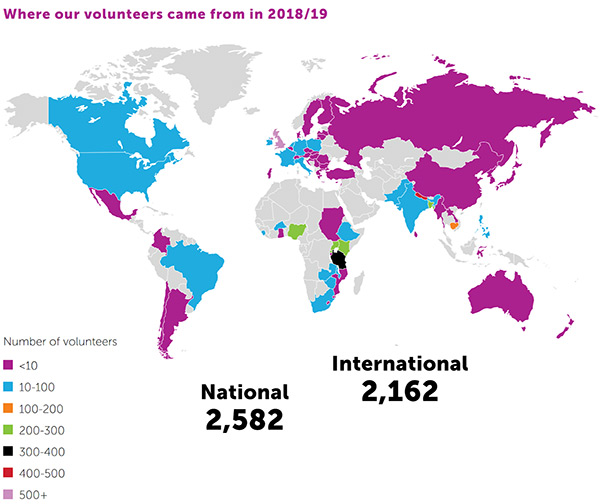
As Voluntary Service Overseas states, most volunteers serve in their home country. Countries with the most volunteers include:
- United Kingdom (500+ volunteers)
- Nepal (400-500)
- Tanzania (300-400)
- Nigeria (200-300)
- Kenya (200-300)
- Rwanda (200-300)
- Uganda (200-300)
- Cambodia (100-200)
Volunteering with VSO is clearly popular around the globe. Anyone has an opportunity to join, but it’s not that easy as acceptance rates are quite low. If you don’t get accepted the first time around, don’t get dismayed. You have alternatives.
For example, you could apply to volunteer with the United Nations. Or, you could serve on a project with an international volunteer organization like Maximo Nivel. Maximo Nivel has initiatives in Latin America in healthcare, education, and community development—similar to VSO programs.
What do VSO volunteers do?
In each country, VSO volunteers collaborate with locals to develop and carry out ideas for solving poverty. The goal is to empower communities to take ownership of change. Volunteers fully embed themselves in the community during their service time, and strive to create localized solutions to problems of poverty and marginalization.
VSO has three core areas of work: education, healthcare, and livelihoods. Through their programs, VSO aims to make education more inclusive, communities healthier, and people more resilient. Here’s what exactly VSO does in each focus area:
- Inclusive education: improves early childhood education and basic literacy skills, develops an education system that leaves no child behind, and builds resilient education systems for students in fragile areas,
- Healthy communities: expands access to healthcare for disadvantaged people, improves healthcare for mothers and newborns, helps vulnerable individuals to realize reproductive and sexual rights and health, and improves healthcare in neglected prison populations
- Resilient livelihoods: works towards fairer outcomes for farming communities, ensures everyone can access decent job opportunities, and supports small- to medium-sized businesses
Powered by professional volunteers and community partners, VSO focuses on practical outcomes. These include both hard and soft outcomes.
For example, VSO strives for hard outcomes from volunteering such as:
- Improved care of mothers, newborns, and the sick and elderly
- More inclusive classroom learning strategies
- Better management of natural resources
VSO strives for soft outcomes from volunteering such as:
- Greater self-confidence among community members
- Increased motivation and morale
- Better problem-solving skills
As mentioned above, VSO has three main areas of work. Within each field, countries have a need for a diverse array of talents. For instance, education programs need IT talent to bring technology to the classroom. Healthcare programs need fundraising experts to get more medical resources to communities.
This means there are a variety of roles for VSO volunteers. Based on your skillset, you can select among roles in:
- Agriculture and natural resources
- Business and management
- Engineering, IT, and technology
- Policy and research
- Communications and fundraising
- Teaching and education
- Community development and social work
- Healthcare
To get an idea of what exactly you’ll do, it helps to look through VSO volunteer openings. Here are a few examples of Voluntary Service Overseas jobs:
- Education Management Adviser in Cambodia
- Main tasks: Improve learning outcomes for children, boost the efficiency of the education sector, and strengthen management systems
- Pediatrician in Ethiopia
- Main tasks: Improve the quality of healthcare services, train staff in essential maternal and newborn care, and support the development of manuals for NICU units
- Resilience Building Specialist in Bangladesh
- Main tasks: Design and deliver programs to improve emergency response, ensure inclusion of out-of-school children drought- and conflict-affected locations, and train teachers on methodologies for educating students from crisis-affected areas.
There are a lot of different Voluntary Service Overseas jobs. Considering that VSO roles are a two-year commitment, you want to ensure the job suits you. A good way to see if you’ll enjoy the experience is to volunteer on a short-term project first.
A good organization for short-term volunteering is Projects Abroad. Founded in 1992, Projects Abroad has lots of volunteer programs in areas similar to VSO assignments. See what healthcare volunteering in Ghana is like, experience teaching English in Madagascar, and more. After serving, you’ll know if you’re ready for a VSO volunteer job.
Why join Volunteer Service Overseas?
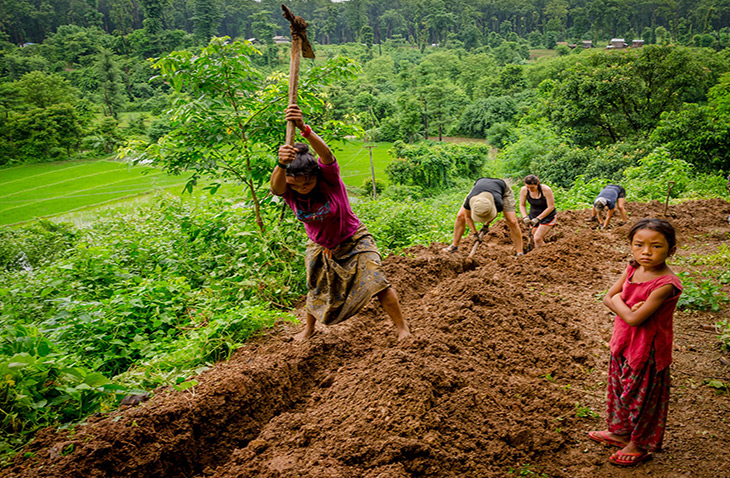
Because you can help people in need! It’s one thing to talk about changing the world. It’s another thing to act. Volunteering with VSO is your chance to do real good for impoverished communities around the globe.
Through your VSO volunteer job, you can help make education better and more inclusive, healthcare more effective and accessible, and communities more productive and resilient. You’ll empower communities to uplift themselves and people to become stronger and more independent. And you can get the world closer to ending poverty.
Serving others is reason enough to apply to VSO. The experience is also an amazing opportunity to travel, immerse yourself in another culture, make friends from all over, and ultimately grow as a person.
Reading what past volunteers have to say shows just how powerful the VSO service experience can be. Here’s what some volunteers had to say:
“I have seen more in one year here than I have in my whole career in England.”
- Beth, a volunteer midwife trainer in Malawi
“The confidence I have gained from this experience is something that will definitely help me be much bolder in future career decisions.”
- Greg, a volunteer business adviser in Bangladesh
The VSO volunteer experience will not only benefit you personally, but also professionally. Whether you’ve been in your field for 5 or 20 years, VSO roles offer you a challenge that will enable you to enact positive change, sharpen your skills, gain valuable experience, and even learn new things, like a foreign language. You could become bilingual while volunteering abroad!
Employers take notice of your volunteer experience too. A survey by Deloitte found that 92% of companies believe volunteering improves leadership skills. And according to Global Vision International, a leading volunteer and internship organization, 60% of employers value international service experience because it displays a passion for solving problems, the ability to adapt and learn, and cross-cultural competence.
Simply put, when you volunteer with Voluntary Service Overseas, you’ll become a more attractive candidate when you apply for jobs later. Combine that benefit with the transformative personal experience you’ll have and the opportunity to make an impact, and it’s easy to see that volunteering with VSO is a wonderful decision.
How do you apply to serve with Voluntary Service Overseas?

As long as you meet the basic requirements, which include at least three years of professional experience and a degree or equivalent qualification, you can apply.
If you’re still in school or don’t have the work experience, VSO has service opportunities for those aged 18-35 through International Citizen Service. However, you must be a citizen of the United Kingdom, European Union, or European Economic Area. Alternatively, you can consider volunteer abroad trips for teens and high school students. Read our guide here. For a full list of the best volunteer abroad programs, read this guide!
For the VSO, the application process goes as follows:
- You search for a role.
- You read more information about VSO volunteer jobs and choose one to apply.
- You fill in the application form. The application is broken up into sections that cover:
- Your education
- Your work history
- Your specialized skills
- Volunteering experience
- Your preferences and interests
- Personal and professional references
- You get an email from Voluntary Service Overseas explaining the next steps.
If you’re bringing a spouse, children, or other companions, you’re responsible for their travel and living expenses. If you’d like to volunteer with your partner or children, you have alternatives to Voluntary Service Overseas. Read our guide on family volunteer abroad trips.
If you make it to the next round, Voluntary Service Overseas will contact you for an interview. The interview process depends on the type of role and location. Generally, the interview process is as follows:
-
- A pre-screening interview via phone designed to get to know you and see if the role suits you. Be ready to show your passion for volunteerism.
- If shortlisted, you’ll take a situational judgment test (online psychometric test). This tests your cognitive ability and personality.
- If you make it to the next round, you’ll do a panel interview with at least two interviewers. Expect questions about how you would address certain challenges and how you would work with people from different backgrounds. You’ll also get asked about your knowledge in the work area of your placement. Note: You may do an in-person assessment or even group interviews with other volunteers. It depends on where you’re located and the role you’re being considered for.
The application process can take several months to a year or more. Some volunteers have reported waiting four months or more for an email to schedule an interview. Consider your future availability before applying. If you have a specific window of time, you may want to apply to alternatives, such as short-term service trips with international volunteer organizations. We have a guide on short-term volunteer abroad trips here.
Before beginning a role, you must pass a medical exam and background check. You must also give a commitment to your placement for the full duration. Once you’ve done that, you’re ready for the next steps. These can be broken down into:
- Pre-departure: You get a medical check by the team and do online training, including language coursework. You may do residential training, depending on where you’re from.
- Arrival: You’ll take part in an orientation to learn about the culture, language, and important issues of the host country. You’ll also go over your placement’s objectives and meet other VSO volunteers. VSO will provide details on your benefits as well.
- Return: VSO helps you settle back into daily life and gets you involved in their active community of returned volunteers.
Tips for Getting Accepted to Volunteer Service Overseas
Before applying to a VSO volunteer job, make certain you meet that position’s specific requirements, especially the experience and language requirements. This will increase your chances of getting an offer.
Additionally, make sure you can commit the time and cover other financial and personal obligations. VSO volunteers do get a modest living allowance, however, it most likely won’t be enough to pay for other obligations, such as your mortgage or student loans.
To boost your odds of acceptance, first master the VSO volunteer online application. Take your time and thoroughly answer each question. Note you’ll also be asked to upload a CV. Make sure to polish your resume beforehand.
Throughout the application and interview process, emphasize skills relevant to the position, such as:
- Proficiency in a local language: Applying to a VSO volunteer job in Mozambique? Knowing Portuguese will make you stand out.
- Relevant skills and experience: If you’re a nurse with experience in reproductive health, you’ll be a good fit for positions in neonatal care.
- Soft skills: Voluntary Service Overseas wants people who possess leadership, communication, interpersonal, and problem-solving skills. The ability to work within a team and adapt to different situations is highly valued as well.
- Cross-cultural awareness: Have you worked in a multicultural environment? Any previous experience working, volunteering, or studying abroad will benefit your application too.
- A passion for VSO’s mission: VSO works to end poverty. Show your passion for that mission.
Volunteering with VSO is challenging. Prove you have what it takes to step up to that challenge! During the interview, showcase your knowledge of the host country, how your skills can benefit VSO’s mission there, and how you’ll address the big challenges.
Finally, apply early and be flexible with where you go. The earlier you get started, the better chance you have of getting a volunteer position at the right time. And if you’re flexible with where you go, you increase the possibility you’ll get a position.
Additional Advice
VSO volunteering isn’t for everyone. Not only is it hard to predict when you’ll deploy on assignment, but also roles last for two years or longer. It’s a major time commitment. Furthermore, there’s no guarantee you’ll get accepted. As mentioned before, more than half of applicants don’t get a VSO volunteer job.
If you can’t join Voluntary Service Overseas, regardless of the reason, know you have other options. At Volunteer Forever, we have a wealth of resources on volunteering abroad. Read through our Volunteer Abroad Program Reviews to get information on the best volunteer, teach, and intern programs around the globe. You’ll find lots of meaningful service opportunities.
For example, with Love Volunteers, a volunteer abroad organization, anyone can find a suitable project that will accept them. From community development projects in Jamaica to education support in Rwanda, Love Volunteers has life-changing intercultural experiences for you to join.
Are VSO volunteers paid?
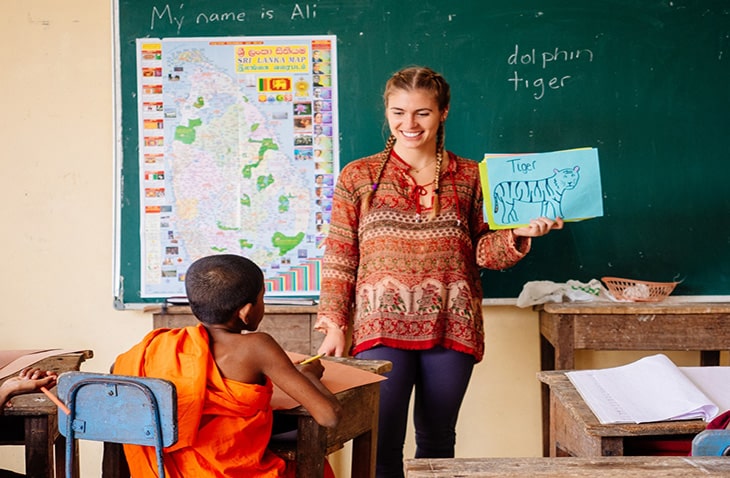
As a VSO volunteer, you’ll get compensation through a local living allowance. This is enough to live comfortably, but not extravagantly. You’ll get additional benefits too. VSO pays for:
- Comprehensive medical and dental insurance
- All vaccination, travel, and accommodation expenses
- Meals while working
- Comprehensive training
- Security and support at in-country offices
That’s a good support package and ensures you can focus on what matters: Working to fulfill the objectives of your placement! Upon return, VSO also assists with resettlement and helps you find employment.
It’s also worth saying that you’ll benefit immensely from the volunteer experience in terms of personal development and career progression. Your service in VSO can be a stepping stone to greater things.
How long are VSO volunteer assignments?
VSO assignments last two years or more. Ending poverty requires inspired, energetic volunteers who have a deep knowledge of local issues. This is why VSO roles last so long. They want volunteers to embed themselves in the community and develop long-lasting solutions.
If you can’t volunteer for that long, consider one of the youth assignments with International Citizen Service. These last 10-12 weeks. You can also do short-term trips with other organizations (more on this below).
What are the best VSO alternatives?
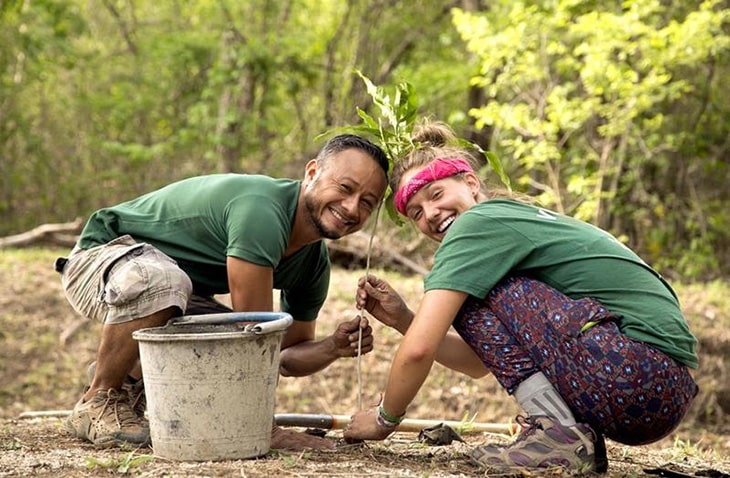
You may think about alternatives to Voluntary Service Overseas because:
- You can’t make the time commitment.
- You don’t meet the requirements for work experience or education.
- You didn’t get selected for a role.
- You want to volunteer in a region or country where VSO doesn’t work, such as North America or Romania.
- You’re not yet 18 years old.
Whatever the reason, know you can still make an impact volunteering with other organizations. If you can’t join Volunteer Service Overseas, you could:
- Volunteer with an international volunteer organization
- Global Vision International, a leader in ethical volunteering, advances the United Nations’ Sustainable Development Goals through their programs. Sign up for projects in a variety of fields, from women’s empowerment to public health to construction.
- Volunteer with the Peace Corps
- Read our guide on Peace Corps volunteering.
- Volunteer with the United Nations
- Read our guide on United Nations volunteering.
- Work as an educator abroad
- Check out our guides on teaching English overseas, promoting literacy, and girls’ education.
- Do an internship abroad
- GoEco, an award-winning volunteer organization, has high-quality internships across many sectors. Save the environment on a marine conservation internship in Mexico, help those who need it most through a medical internship in Costa Rica, and more.
Want to get started as soon as possible? Then, we recommend applying with a volunteer abroad organization. Applications can be completed in 15-30 minutes and you can depart on your volunteer adventure within weeks. That’s a lot faster than the 3-12+ months the application process with VSO takes.
Below, we discuss four of the top volunteer abroad organizations. Look through their offerings, and see what catches your eye!
Plan My Gap Year (PMGY)
PMGY is one of the most trusted volunteer organizations and sends more than 4,000 volunteers abroad each year. Open to all nationalities, Plan My Gap Year has affordable projects across Africa, Asia, and South America. With PMGY, you could teach English in Morocco, serve as a medical volunteer in India, or care for neglected children in Ecuador. There are so many ways to help people!
Maximo Nivel
Since Voluntary Service Overseas lacks projects in South America at the moment, you need to look elsewhere if you want to volunteer in the region. Enter Maximo Nivel—the leading provider of volunteer and intern programs in Latin America. Make a difference with Maximo Nivel by working on a sustainable coffee farm in Costa Rica, doing a healthcare internship in Guatemala, or volunteering with indigenous communities in Peru. As you can see, Maximo Nivel has lots of wonderful ways to give back in Latin America.
Love Volunteers
Love Volunteers began in 2009 with high aspirations: to make volunteering more transparent, cost-effective, and impactful. Flash forward to today, and it appears they’re fulfilling that mission. Love Volunteers has a 96% rating from past volunteers and runs hundreds of successful projects. Volunteer to help those with disabilities and special needs. Join construction projects and build houses, schools, and community centers. Or coach sports and teach arts, and instill confidence in the next generation.
Projects Abroad
Founded in 1992, Projects Abroad has unmatched experience in volunteerism. They’ve placed more than 125,000 volunteers on projects abroad and were recognized as the 2020 Best Volunteer Abroad Program by Volunteer Forever. With Projects Abroad, you can choose among projects in youth development, education, community development, and other areas (similar to Voluntary Service Overseas). What’s also great is Projects Abroad works all over the world. From human rights internships in Argentina to business internships in Mongolia, you can enact positive change anywhere.
Ready to serve with Voluntary Service Overseas?
You now understand the VSO volunteer experience. From the application to the experience to your return, we’ve covered it all. It’s time to start the process!
As long as you have an open mind, stay committed to the mission, and adapt as you go, you’ll have success as a VSO volunteer. And the local community will remember your contributions for a lifetime.
Remember: If Voluntary Service Overseas doesn’t accept you the first time, don’t get discouraged. You can volunteer on other exciting projects, like the ones we’ve mentioned in this guide.
To conclude, nothing’s holding you back from volunteering abroad. Whether as a VSO volunteer or volunteer with another organization, you can have a life-changing experience and help disadvantaged communities.
So, don’t wait any longer. Take action now. And begin your volunteer adventure!












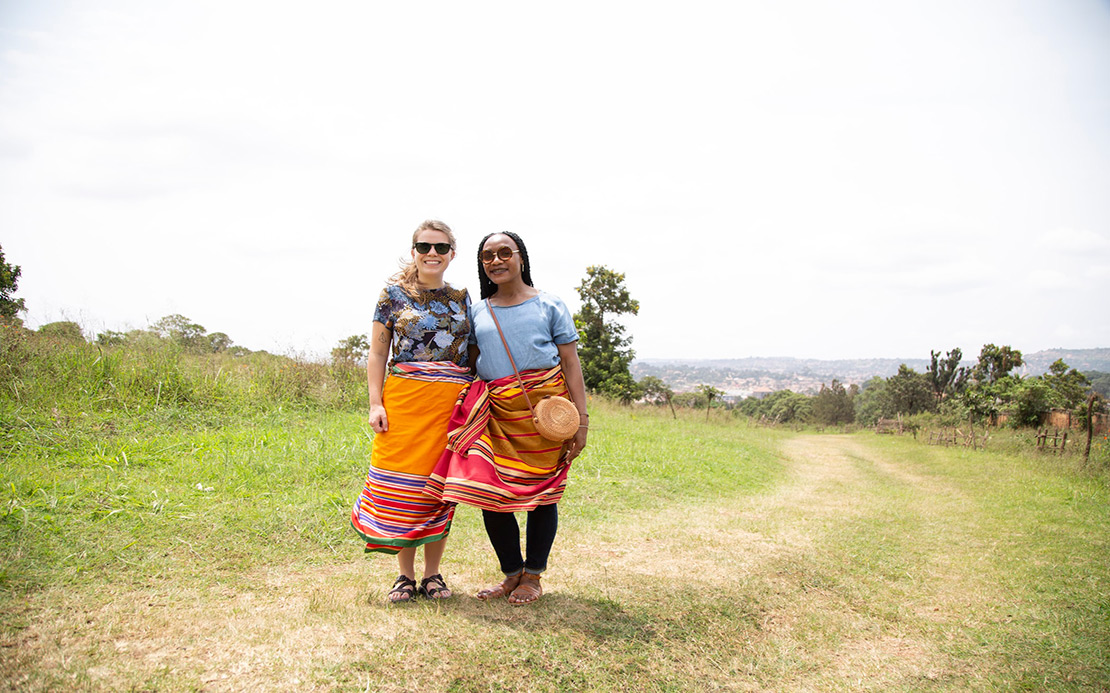
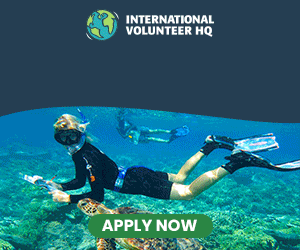

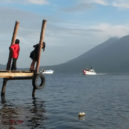
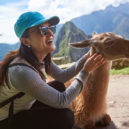







Nick Callos · Writer
With a BA in English Literature & Writing from Boston College, Nick researches and writes about volunteer, intern, and teach abroad programs worldwide. He has studied abroad and taught English in Chengdu, China, and aims to help fellow travelers make a lasting impact on the communities they visit.